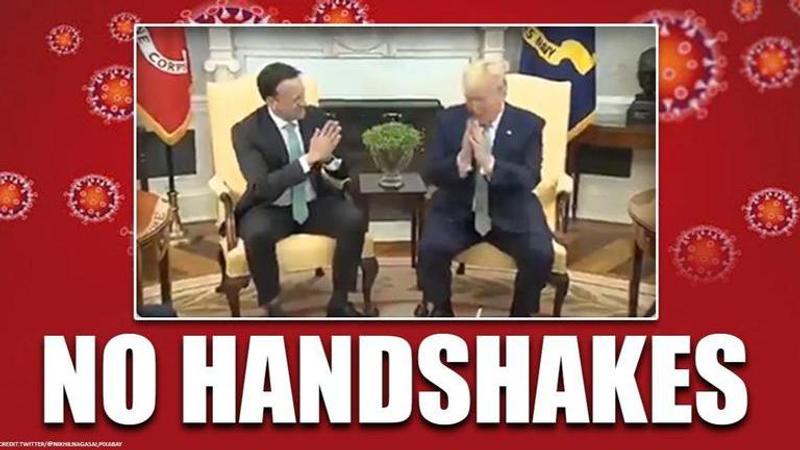Published 17:12 IST, March 13th 2020
'Coronavirus-proof' greetings that are becoming popular across globe
As the deadly coronavirus has now spread to more than 100 countries, people are avoiding the most common form of greeting, the handshake and using 'Namaste'.

As the deadly coronavirus has now spread to more than 100 countries, people are seen mostly avoiding the most common form of greeting, the handshake and switching to Indian traditional way of 'Namaste'. The easily spread virus can be transmitted from human to human through touch making people abstaining from pecks on cheek, hugs and high-fives for preventions. Here are some 'coronavirus-proof' greetings used around the world in order to prevent contraction of the virus which has now killed more than 5,000 people worldwide.
Adaab/Salaam
A gesture was introduced by South Asian Muslims in order to refrain from touch and 'Adaab' means respect and politeness. It basically requires the individual to bow slightly while raising their hand towards the face, palm inwards, fingertips almost touching the forehead. Salaam is also a way to greet people and it involves Adaab with a low bow.
Bowing
Apparently most east Asian countries practice various forms of the bow or genuflection as a form of greeting. Bowing is especially popular in Japan, European nobility where deep bows are considered a sign of respect. There are also curtsies which is a variant of bowing that can be used in informal greetings. Curtsies involve bending a knee with the foot behind the other and a slight bow of the head. It was initially designed as the female version of male genuflection.
Salute
Popular as the only form of salutation among the military personnel, salute can also be used during this time when people are abstaining from handshakes. There are many types of salutes including one-finger salute, the formal salute among others.
Bao Quan Li
The traditional Chinese way of greeting, Bao Quan Li involves wrapping one fist in another palm in front of one's chest and then bowing slightly. Supposedly, it is derived from tai-chi, which is a popular greeting in martial arts.
Vulcan
This type of salutation was a hand gesture mainly popularized by the television series Star Trek in the 1960's. It mainly consists of a raised hand with the palm forward and thumb extended while the fingers are parted between the middle finger and ring finger.
Updated 17:12 IST, March 13th 2020




